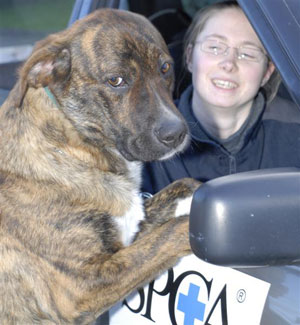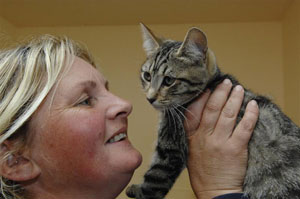Animal Attendant
Tasks & duties

Animal attendants may do some or all of the following:
-
clean and inspect the animals and their enclosures and/or habitats
-
feed the animals and ensure their individual nutritional requirements are fulfilled
-
see to the well-being needs of animals including their bathing, grooming, exercise and health care requirements
-
treat animals for minor injuries and illnesses under vet supervision
-
train animals and help to develop training programmes
-
carry out maintenance work for animal environments including looking after the grounds, caring for plants in animal habitats and carrying out repair work on animal homes
-
be involved with developing programmes to enrich animals' behaviour and environment
-
maintain records and carry out any general office work relating to animal care
-
be involved in the design of new habitats for animals
-
assist the public, answer their questions and give educational talks
-
observe and record animal behaviour and assist with the handling of animals in research projects
-
participate in conservation related projects, such as breed-and-release programs
-
find homes for stray or unwanted animals
Specialisations
Animal attendants may specialise in caring for certain species of animals, such as reptiles or carnivores, especially if they work in zoos.
Skills & knowledge

Animal attendants need to have:
-
animal-handling skills
-
knowledge of animal behaviour
-
knowledge of animal training techniques
-
knowledge of animal diseases
-
knowledge of first aid
-
grooming skills
-
communication and teamwork skills
-
organisational skills
-
the ability to follow instructions
Entry requirements
To become an animal attendant you need at least three years of secondary education. Some employers may prefer you to have a tertiary animal-handling or animal-welfare. To gain employment in a zoo it is preferred that you have completed a National Certificate in Captive Wild Animals through Unitec.
Training on the job
Skills are learned on the job, and animal attendants are sometimes encouraged to gain tertiary qualifications such as a National Certificate in Veterinary Nursing. They can also update their knowledge and skills through attending conferences and seminars run by animal associations. In particular, AgriQuality New Zealand, which oversees a non-compulsory set of minium standards for kennels and cattery's, offers animal training courses. Animal attendants may also need to be familiar with the Animal Welfare Act.
Useful experience
Any experience working with people and animals is useful.
Related courses
Land, Parks and Wildlife Management
Veterinary Assisting
Document Actions
